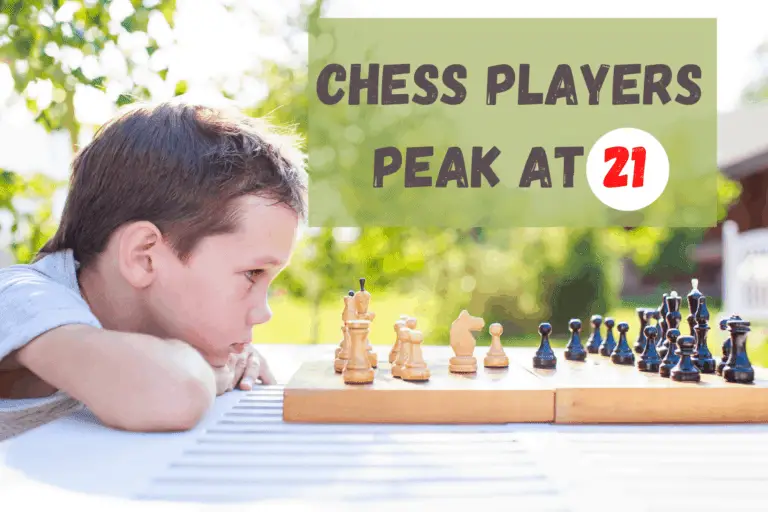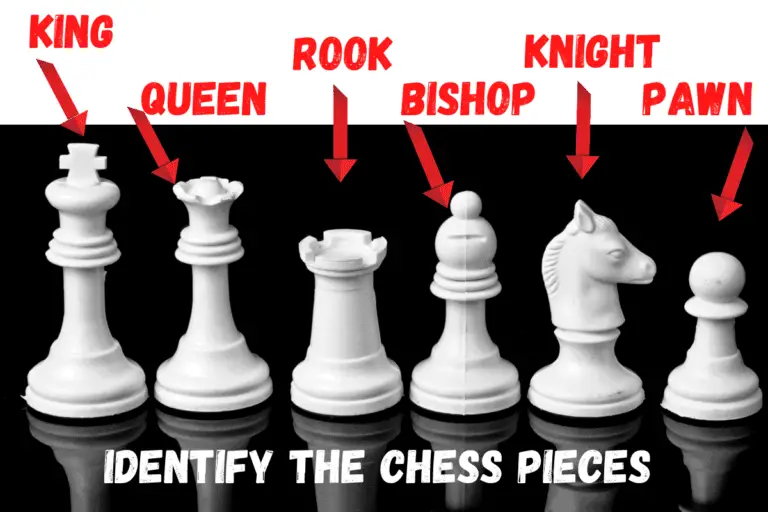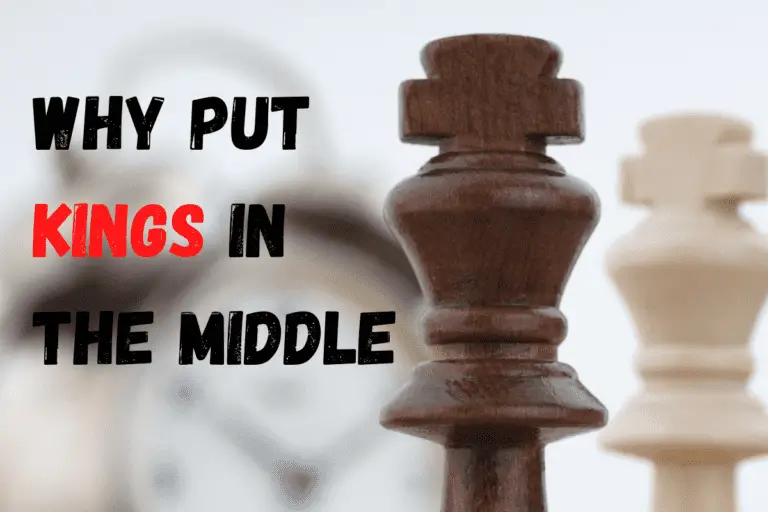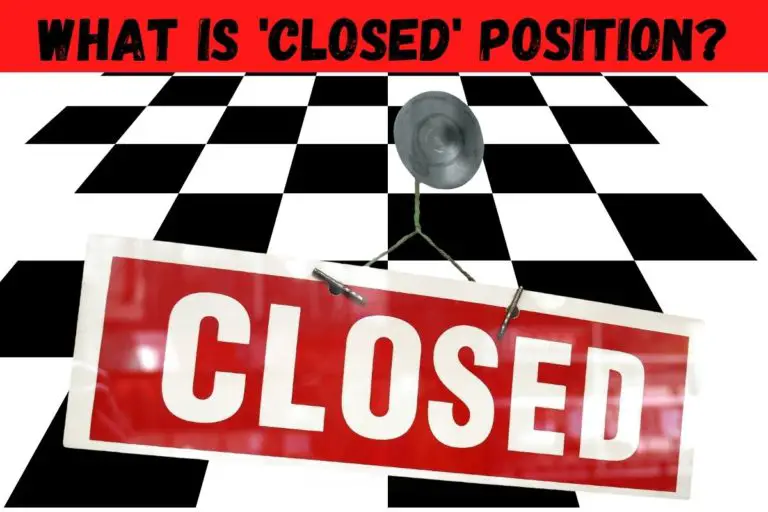Is Chess Bad for you? (Hint: Probably – What To Avoid)
⭐⭐⭐ Take 6 minutes to read and improve your chess game ➡️ : This article was first published on, and is Copyright of Chessquestions.com
Studying chess doesn’t take an hour or two every week; most players will spend hours on end studying openings and memorizing countless moves to improve their performance. But is all that time spent on chess worth it? Are the benefits of learning chess worth the potential negative side effects? Why could chess be bad for you?
Chess can be bad for you if you ignore other elements of your life such as health, family, or financial commitments in the pursuit of another game. Chess is mentally challenging and can cause insomnia, or cost time and money that you may not have readily free.
I am going to look into the negative aspects of playing chess and how we might be able to see the warning signs in advance and avoid issues with getting too involved with our chess hobby and keep the game enjoyable and as stress-free as possible.
What are the Disadvantages of Playing Chess?
Whilst there are many great aspects of learning and playing chess, as with anything in life too much of a good thing can turn bad. Disadvantages to dedicating too much time to chess can include:
1. Addiction
Chess addiction is real. I have found myself playing right through the night until the sun comes up. This can lead to a lack of sleep which is serious within itself.
Chess addiction is real, and whilst not comparable to substance addiction and abuse, it is still a serious issue.
- There are many reports of chess addiction, with some going as far as to say that the game can be MORE addictive than drugs and alcohol
- Some people have been known to play right through the night until they’ve lost all track of time – That’s me!
Brain games can be good mental exercise but there comes a point when your chess improvement will suffer and the positive effects of study for casual players soon become obsessive, they could have eyes on becoming a professional chess player, but instead, the time spent pouring over the chess board can be detrimental in many ways.
2. Replacing Physical Excercise
Chess is no replacement for physical exercise. As a sedentary sport (Yes chess is a sport) you may find you are playing chess when you might have been taking physical exercise before or taking so many chess lessons you don’t have time for exercise.
A lack of exercise is bad for you. It can lead to a number of other health problems such as heart disease, high blood pressure, and diabetes; all common physical ailments that are associated with lack of exercise. And too many games of chess leaves less time for physical activity.
3. Too Much Time Online
Chess can cause you to spend too much time on your mobile phone chess app or in front of a computer screen. This leads to spending less time with friends or family and can lead to a lack of physical exercise.
The problem is that there are many elements in your life, such as health, family, and financial commitments that you may neglect while focusing on chess at the expense of something more important. As much as I love chess, it’s not worth sacrificing parts of my life that I noticed I was ignoring when I became too involved with looking for my next opponent or stressing over recovering some of those Elo points lost when I playing tired and not at my best.
Not all effects of chess are positive.
4. Affecting your diet
If you get too involved playing chess and give it too much time, you may find yourself looking for snacks rather than preparing and enjoying a nutritious meal. I don’t have to point out the dangers of a bad diet brought on by playing too much chess. Coupled with less physical exercise, it is a recipe for disaster (Excuse the pun)
Is Chess Worth It?
All of the disadvantages of the list above leave me asking is Chess worth it?
Chess will take, time effort, and dedication, and without a doubt, it is worth learning chess to a reasonable level of skill. There are many cognitive benefits around practicing and participating in chess games, not least for brain exercise and mentally challenged with problem-solving.
Is Chess a Waste of Time
There is no doubt whatsoever that chess is a waste of literal time if we speak of using time. Classical chess is not a quick game and many hours can be spent on a single game. Online chess is very accessible and potentially even worse. Learning chess and the enjoyment that can be gained is NOT a waste of time, however, as long as you keep things under control.
Professionals
Of course, chess is not a waste of time for a professional, player, coach, or YouTuber, or any other person who is able to earn a living from links with the game.
The more time spent at a chessboard either teaching, playing a tournament where there is a realistic chance of walking away with a monetary profit, or streaming online on YouTube or Twitch and earning more than the best players in the world, chess is very much worth every minute of time placed into it.
Amateurs
If there is no gain in terms of monetary value, and I would go as far to say no gain in the social aspect of chess, that is you play alone at home online, then chess could be deemed a waste of time.
Be careful to not get too involved and spend too much time playing, unless you have realistic visions of getting into a position to be able to earn some form of income from association with the game.
Does Chess Make You Go Crazy?
There is nothing quite as frustrating as making that bad move or missing the simple tactic to checkmate your opponent. Stress and anger are not good for you in any way, shape, or form. Playing chess can be a negative experience if played too often and without breaks from it.
There is no evidence to suggest that playing chess alone will make you go crazy or have a detrimental effect on your mental health, however, it is true to say that several pre-eminent chess players have suffered from some mental health issues
Famous Chess Grandmasters have had Issues but was it down to chess?
There are many citations of various chess champions and grandmasters with claims that they were made crazy by chess, but was chess really the reason they went from intelligent people to mad people? Was the mental rearrangement of their particular intelligence the reason they were great at chess?
Paul Morphy died a beggar on the streets having seemed to have suffered very quickly after reaching the pinnacle of the chess world
Wilhelm Steinitz the first world champion saw out his days in a mental asylum.
Bobby Fischer was plainly one of the greatest chess players ever but is also noted as one of the craziest since he spent decades going nuts over the game and coming up with some wild and mad claims.
Chess + Drugs and Alcohol are Plainly bad for You
Chess can be a very social game and I admit to taking a single malt or two whilst playing in social company and very enjoyable it is too. I look forward to it, as a come down from my day job, and one of my relaxation processes.
Bad Habits
The one thing I do not do is rely on that single malt every time I play, in so much as it becomes a habit. As I mentioned earlier, there is even such a thing as chess addiction. If you have an addictive nature, then it is quite possible that you could add other salubrious habits to your chess one, and as we will see below, that can lead to disaster.
Neither alcohol or drugs are good for you when taken in excess, and it would seem that the activity can be closely related to chess in some infamous cases.
Jose Capablanca was a chess genius, a talent almost as big as his over-inflated ego, that saw him enjoy the finer things in life to excess to such a point that eventually, his salubrious habits had his blood pressure rise so high, something popped in his brain when in a chess club in New York where he died during some game analysis.
That excessive indulgence might have been catching for Alexander Alekhine was totally dedicated to chess arguably studying it for longer than anyone else in history. He defeated Capablanca but soon after would challenge even him to the bottom of a bottle; often arriving for tournaments in a sorry state.
Mikhail Tal not only enjoyed his drink but coupled it with a drugs habit too, dying at just 50 from his excesses, looking 30 years older, and his kidney failure the given cause.
So chess certainly has some effects that can be bad for you, if turning to substance abuse that can be intrinsically linked to the stresses of playing chess or the indulgence of the rewards for being brilliant at chess!
Summary
Chess should be viewed in much the same way we view all things that are pleasurable and enjoyable. In moderation, chess is perfectly safe and can be good for you, but as we have seen from examples above, if too much time is given to chess, or you have a mental instability that leaves you prone to self-destruction, the amount of time and brain effort given to the game of chess should be moderated.
Happy Chessing!






